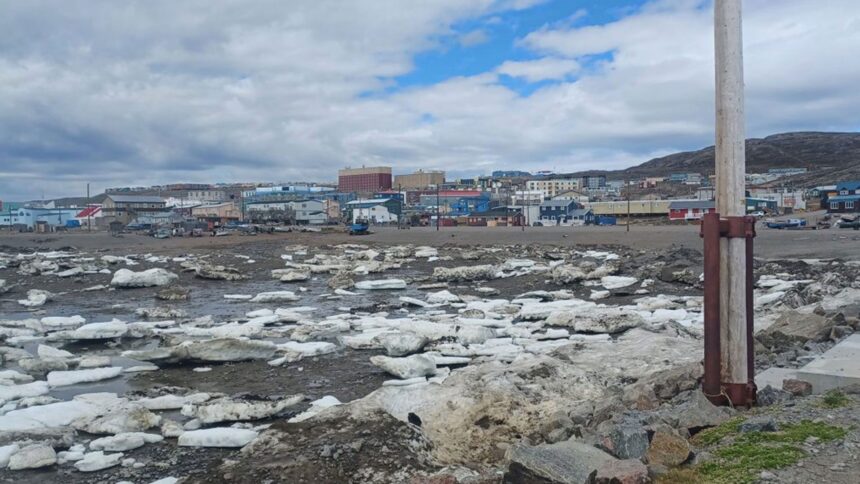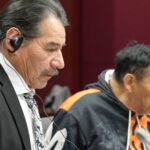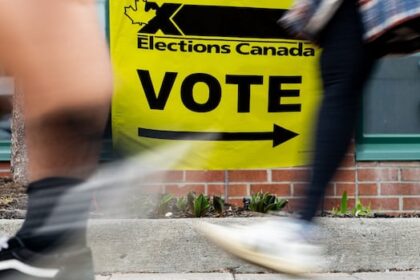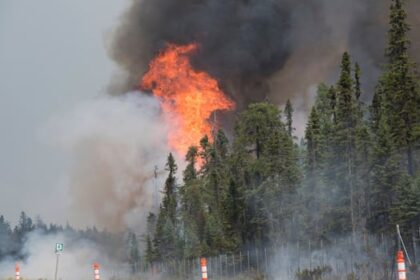The Iqaluit Elders’ Society has issued a call to action for the government to act on what it calls an “Elder care crisis” in Nunavut. It says the severe housing shortage, high repair needs, and limited accessible housing are putting Elders at risk. It comes in the midst of Nunavut’s general election. The society is calling on territorial election candidates to prioritize Elder housing and care, which it says, hasn’t been a talking point so far with voters heading to the polls on Oct. 27. The Society is critical of the territorial and federal governments’ institutionalized model for Elder care, which it says Nunavut residents don’t want. “They have been sending Elders to an institution in Ottawa called Embassy West. And there are more than 70 Inuit Elders at that location. And we’re told that they are spending $17 million a year for those services,” says Anne Crawford, project coordinator with the Elder Society. “So instead of…institutionalized care, which does not allow people to remain in community, takes our best language speakers out of community, removes grandparents, impacts social structures, etc., could we use the proposed capital budget to fund care in communities and construction in communities?” Crawford tells APTN News in an interview about people like Raymond Ningeocheak, a former politician who served as vice president of Nunavut Tunngavik Incorporated (NTI) from 1993 to 2011. She says he spent about a year in the Ottawa facility, but didn’t want to be there. According to Crawford, because it was against medical advice, the government wouldn’t help him get home. Instead, his family fundraised $45,000 to pay for a medevac. He died a few short months later at the age of 81. “There’s a generalized feeling that this kind of institutional care is definitely not what Elders want-or families or communities. So the government of Nunavut has taken an approach that they would like to provide this care in territory,” Crawford says. To that end, in February, the Nunavut government unveiled the “Aging With Dignity Elders Seniors Strategy.” It focuses on improving elder care and support services. According to the government’s website, it includes long term plans to build new Elder care facilities. But the Elders’ Society is critical of that approach and believes caring for seniors at home would be more beneficial. The Society published “Housing for Nunavut Elders: Independent Living in Community” in June. It proposes five fundamental actions needed for change. NTI supported the report which “draws on community input, Elder voices, and data from across the territory.” It shows the lion’s share of Elder funding in the territory, about 87 per cent, goes toward institutionalized care, which serves only 2.5 per cent of Elders. It says there are 1,700 Nunavummiut who are 65 or older and 97 per cent of those are Inuit. It also shows 4,400 Nunavummiut will be 65 or older in the next 20 years. The Society is asking government to commit to Elder housing in every community, designing adaptable housing models, comparing costs of aging in place versus institutional care, supporting community-based Elder programs, and establishing standards for home-based care. “Our Elders have led the way in identifying what is needed,” says Ainiak Korgak, Elders Society board chair in a news release. “They want to live close to their families, language, and land-not to be sent away because of a lack of suitable housing or care. They have much to offer and want to continue to support strong communities and the next generation.” The society points to the Alzheimer Society of Canada’s “Risk Factors for Dementia” published in 2023. It says those risks include social isolation, hearing loss, diabetes, high blood pressure, limited mental engagement and restricted physical activity among other factors. The Iqaluit Elders’ Society is hoping to get the attention of election hopefuls during a news conference Wednesday. There are 58 candidates seeking one of 22 seats in Nunavut’s legislature. Continue Reading
Society says crisis in Elders care in Nunavut should be an election issue

Leave a Comment










